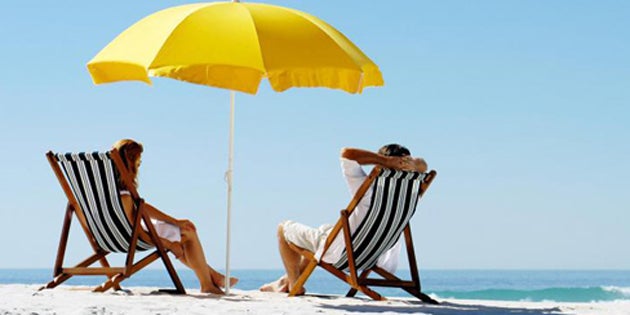Planning a couple’s weekend trip is not always easy.
Not only must you pick a destination spot and find accommodations, but you also have to choose a time to go and decide what activities you will do once you get to your retreat.
Most of all, both people need to be happy about the decisions.
A new study by College of Charleston Hospitality and Tourism Management Associate Professor Wayne Smith shows that when it comes to a couple’s weekend getaway, it is a game of give and take.
Smith studied 25 couples as they planned a weekend getaway. His research looked at everything from booking the trip to finding the right restaurant.

Smith found some trends.
Like when it comes to making a decision on when to take a getaway, women usually take charge of the decision.
“This was not a big surprise,” says Smith. “Women tend to know more about the household calendar especially when it comes to children’s issues, so it makes sense that they would be the ones to pick the dates.”
Smith’s research also showed that men seemed to be more interested in the cost of the weekend getaway than when it will occurs.
He found that the biggest negotiations occurred when couples tried to decided what to do on vacation.
“When it comes to activities, there seems to be a split. Men were more likely to look at physical activities while the women were looking for more relaxing activities,“ Smith concluded. “For example, if the guy wanted to play golf, he would suggest that the woman use that time to go to the spa, knowing the spa is something that would be of interest to her. In this case, they both get something that they wanted. That compromise made them both feel good about the outcome.”
Smith says the study shows that no sex is dominant when it comes to decision making.
Deciding on where to eat on vacation was usually not a big fight. Smith’s research concluded debates over restaurants were usually quickly resolved because couples usually know each other’s food preferences.
The study also revealed that newer couples take a lot longer to come up with travel plans and activities compared to older couples. Smith concludes couples that have been together longer know each other’s preferences and thus come to travel conclusions faster.
Humor is also a big part of the negotiations.
Smith said men usually used humor to try to convince women to take part in a particular activity. “When one person doesn’t think that the partner will do a particular activity, the partner tended to make a joke about it to try to ease him/her into that activity.”
Smith says the results of the study could help resorts when they market vacations to couples.
“There are definite roles within the relationship and when you are marketing to couples, you need to understand that.”




